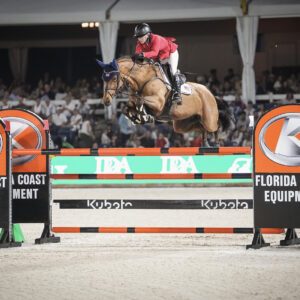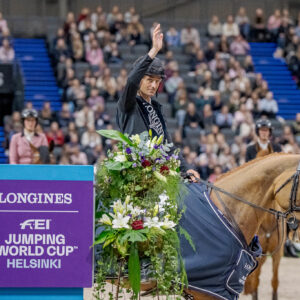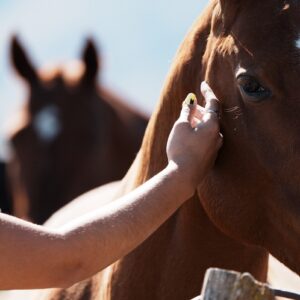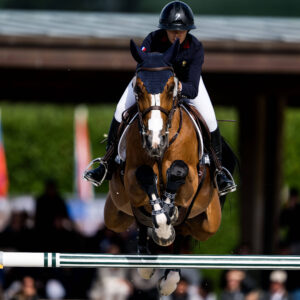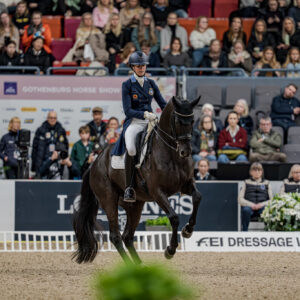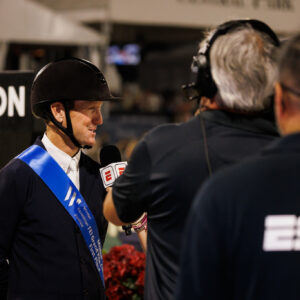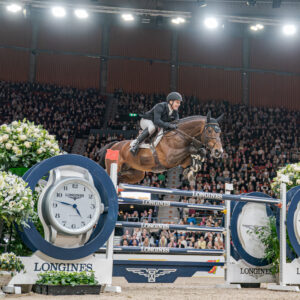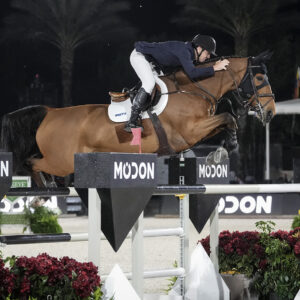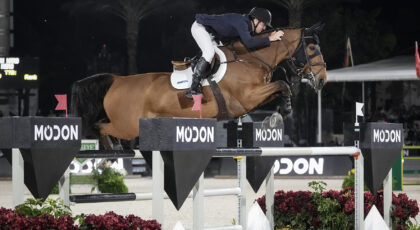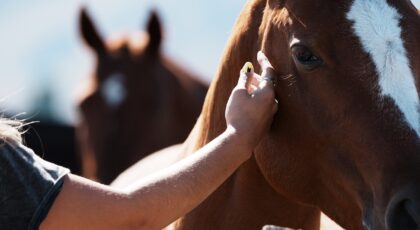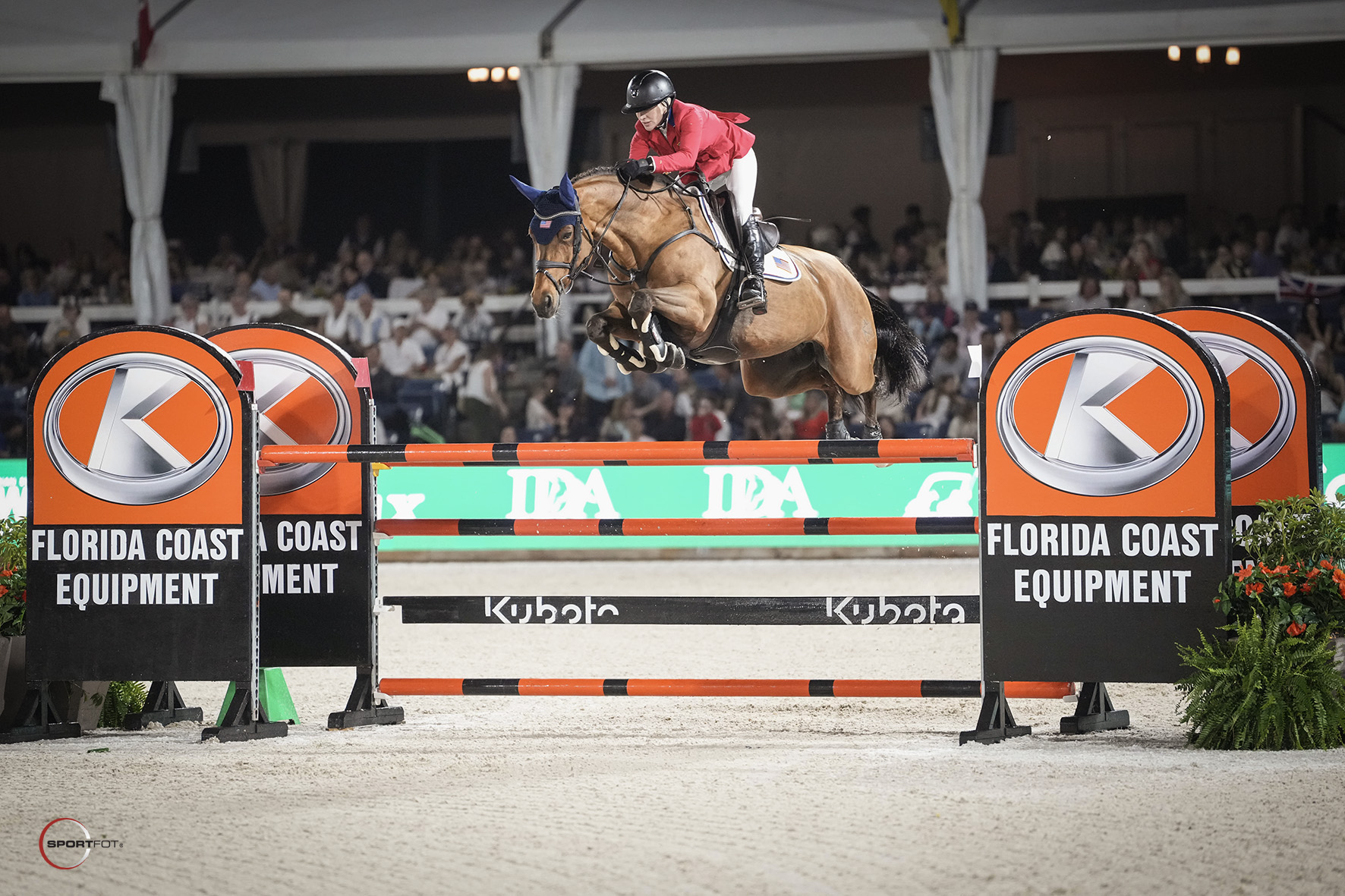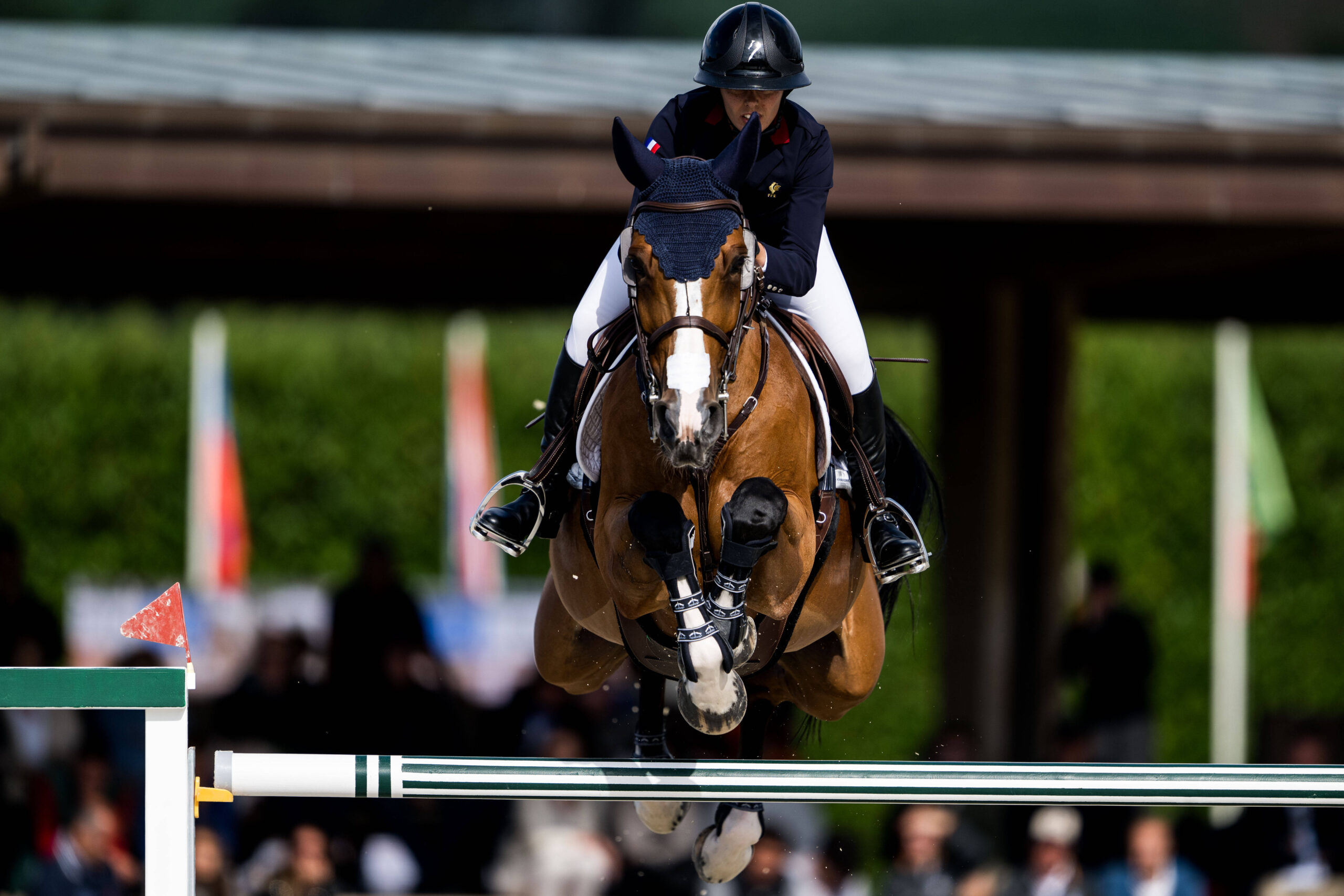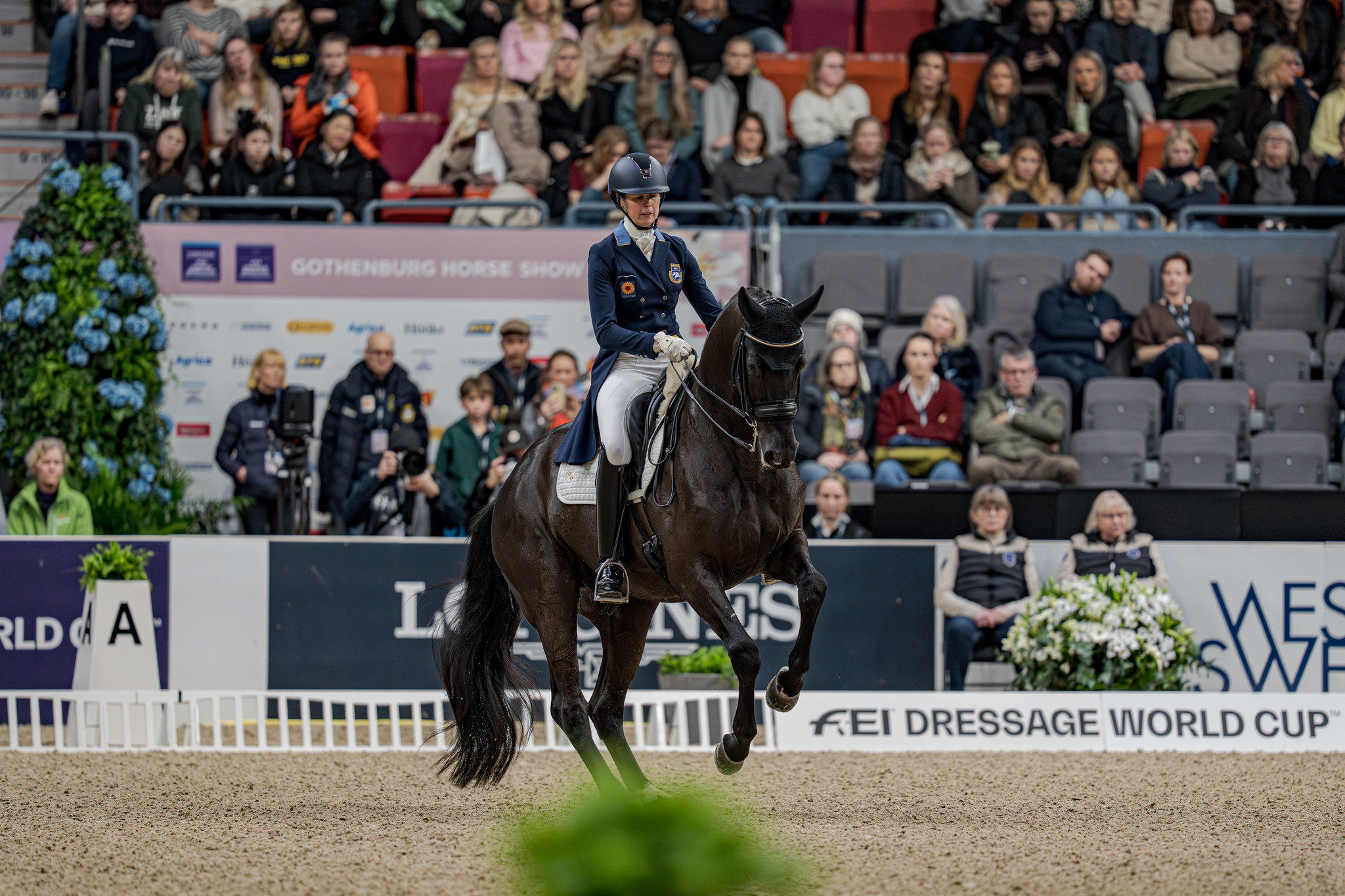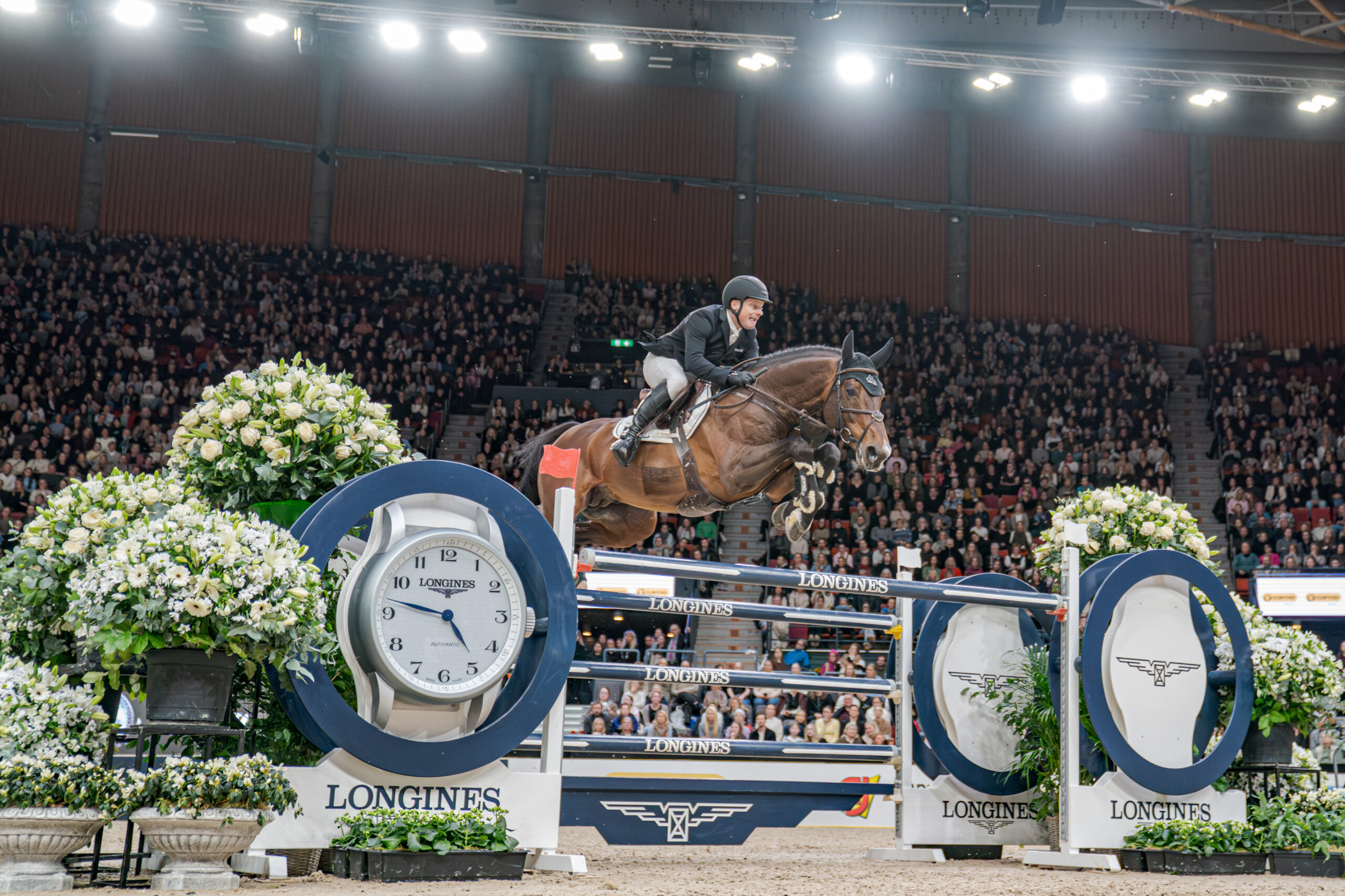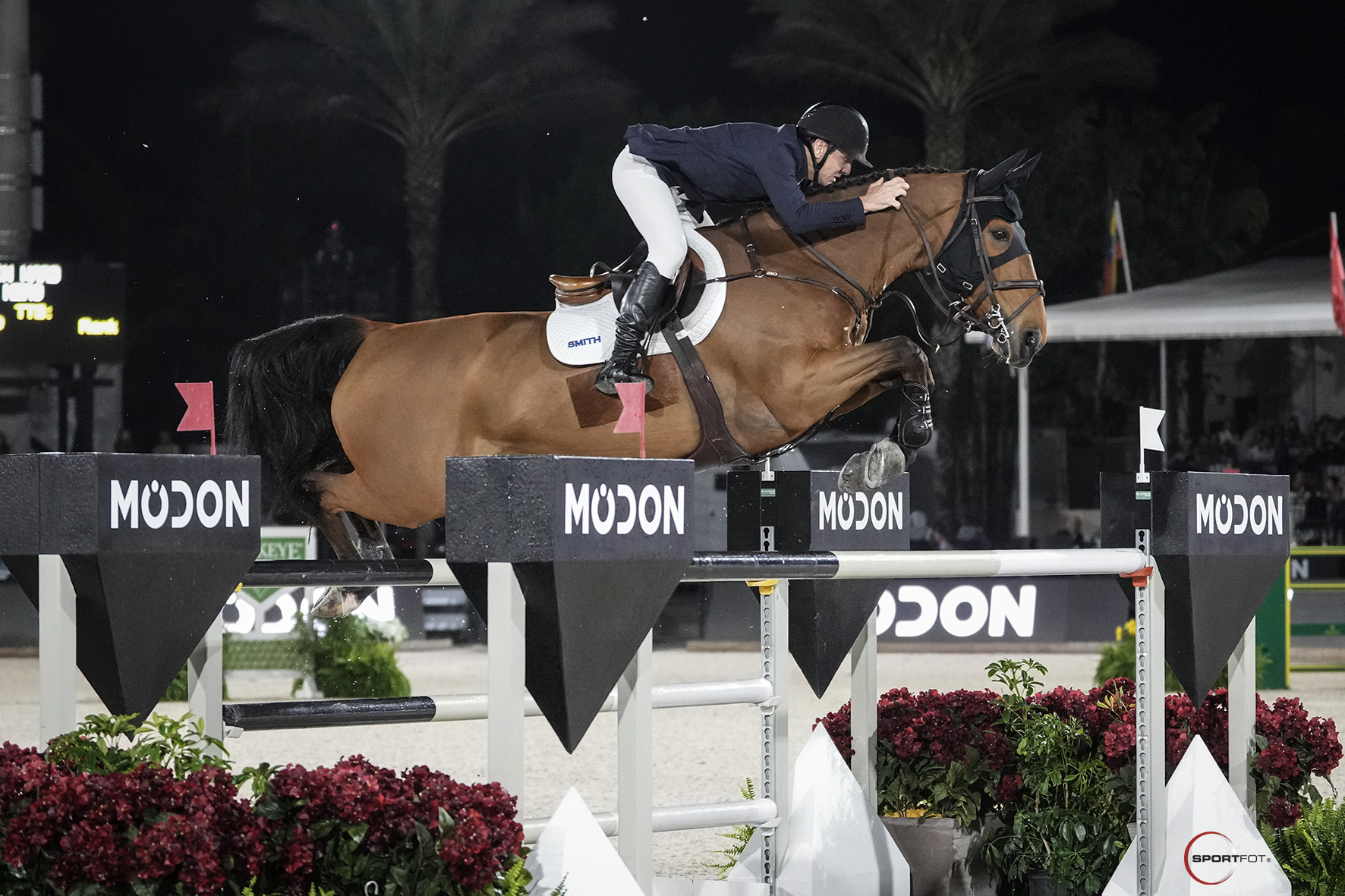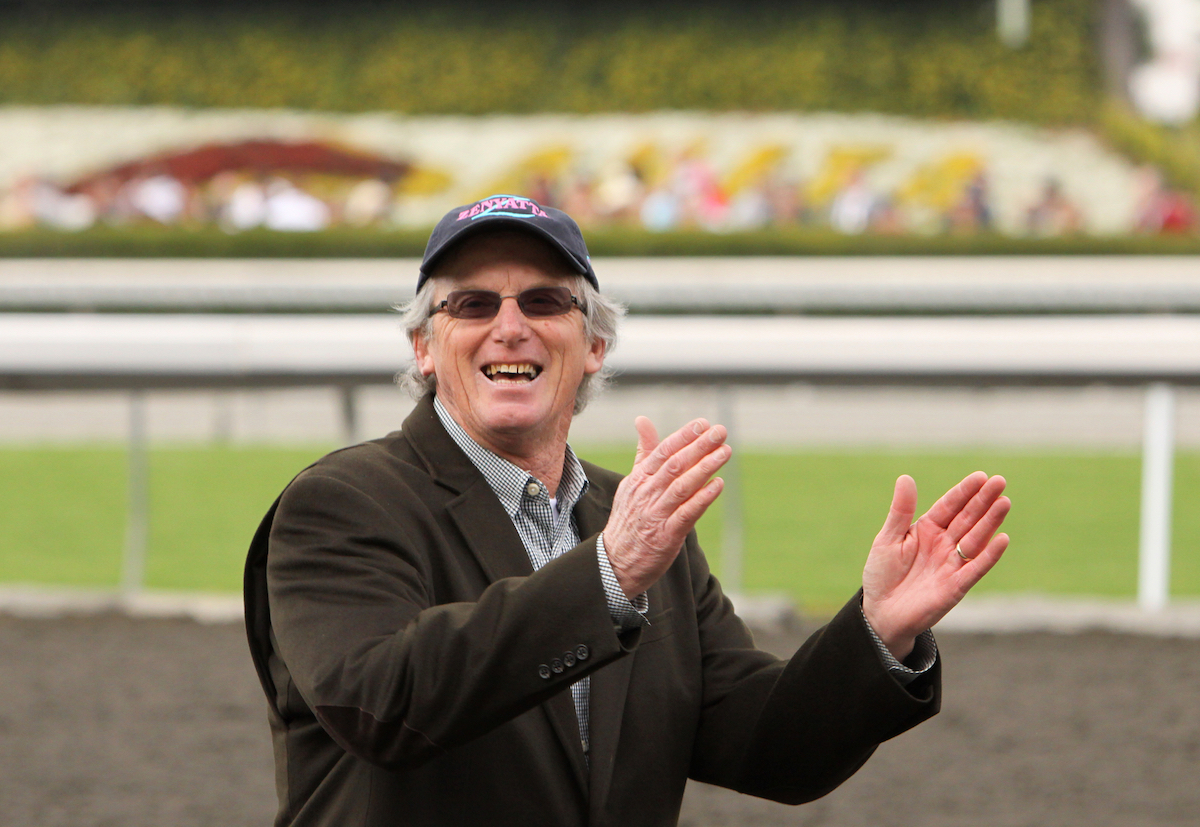It isn’t overt.
They don’t hear slurs and they aren’t excluded from barns or shows. But Abriana Johnson and Caitlin Gooch both say they have felt the sting of racism in their interactions with the horse industry.
It’s the insidious questions:
Whose horses are those?
How do you fit your hair in a helmet?
Then there’s the side eyes, the giggles, the comments.
“It just makes things uncomfortable,” says Johnson.
Gooch agrees. “It’s people questioning your existence in certain spaces.”
Johnson and Gooch are the combined force behind Young Black Equestrians, The Podcast, a project they launched last year to share the diverse experiences of black people in the horse industry. What they found through interviewing other black riders is that many had the same stories.
“In the grand scheme of things, all of our experiences end up being similar,” says Johnson.
There was the cutting horse rider who told them she was stopped at a gas station and pointedly asked who owned the rig full of horses she was driving. There was the dressage trainer who said that a client—after months of having her horse in training—suggested a white rider would be a better fit to show the horse. They know black men who, while riding, have been stopped by the police and questioned.
Gooch’s family has owned a farm in North Carolina for more than 30 years and they still have people drive up and ask who owns the farm and the horses.
“They just keep asking questions, asking you to prove it. The undertone is ‘how can you afford this?’” she says.
Both know people who have left the horse industry entirely because of these experiences. Others just don’t bother showing and are content to enjoy their horses at home.
“The show world is stuffy to begin with. When you already feel that you are going to be marked down on the basis of what you look like, most people won’t bother,” says Johnson.
“People go where they feel welcome,” she adds.
Historically speaking, the horse world has not been that place. Let’s talk about why.
A culture of silence
Racism in the horse community is a hot button topic at the moment. But it’s only recently that several notable trainers have spoken out and views largely remain divided.
Some have highlighted the systemic barriers that keep people of color out of the horse world. Others have dismissed these concerns, simply saying the only barrier is money while ignoring the broad issues that contribute to an income gap in America that runs along racial lines.
But even sharing experiences as a black equestrian comes at a risk.
Philesha Chandler, a dressage trainer in Wellington, FL, says that asking black riders to speak out about racism can be fraught, because people are quick to question their experiences or interpretation of events.
Chandler has spent her career keeping her head down and working hard to prove herself. She was the winner of Robert Dover’s show America’s Next Equestrian Star and spent time training under the U.S. dressage team’s former chef d’equipe. She’s also ridden with Olympic show jumper Kent Farrington.
While she never encountered racism working with Dover or Farrington, she says that she has had negative encounters in the more than 30 years she’s been horse world.
“I have had experiences that have hurt to the core that I’ve had to work through and rise above. To put that out there to the world and have the world take that apart, I’m not at that place yet,” she says.
“I know that there are people out there who refuse to believe that racism exists in our sport, that will refuse to believe the experiences that a lot of black people have gone through.”
Johnson echoes that sentiment, noting that there are always concerns about sharing experiences. “You don’t want to put yourself in a situation where your words are taken out of context and you can’t advocate for yourself because there’s always some bias in the situation,” she says.
There’s also always variation in black experiences. Johnson admits that some people have shared with her that they cannot recall ever experiencing any racism in their journey in the horse world.
“That’s perfectly fine,” she says. “It’s not a badge to wear, but if some people are having these experiences, they should at least be listened to.”
Diversity versus inclusion
The Black Lives Matter movement and ongoing discussions of race and privilege have brought awareness of the lack of diversity in the horse world to the forefront. But this lack of diversity is just a symptom of a bigger problem that’s harder to fix—the horse world is failing at inclusion.
“Inclusion,” Johnson wrote in an essay for Horse Network, “is a collaborative, supportive and respectful environment that increases participation and contribution; and behaviors and social norms that make people feel included. Genuine inclusion means a cultural change.”
For that cultural change to occur in the horse world, there needs to be an openness for meaningful dialogue about the experiences of BIPOC horsemen. As Margaret Renkl wrote in an 2018 op-ed in the New York Times “somehow you need to find enough common ground for a real conversation about race. Very few people are stupid or irredeemably mean.”
It isn’t easy to change decades of ingrained behaviors and beliefs, but a start is to simply listen—with an open mind—to people who are saying they feel unwelcome in the horse world.
That’s an individual mandate as opposed to a governing one, adds Johnson. “Having a diversity panel is not going to work,” she says, “you don’t need a team to ensure people become better people.”
Instead, we, as horse people, need to take an honest look at the implicit biases we carry—for example, automatically assuming a person is a groom because of their appearance.
That deceptively simple task alone can make a significant difference, too.
A study from 2012 in the Journal of Experimental Social Psychology titled “Long-term reduction in implicit race bias: A prejudice habit-breaking intervention” helped people identify their implicit biases and then asked them to participate in a series of mental exercises to reduce these biases. The results were promising—participants showed a marked reduction in implicit bias after just four weeks and a sustained concern about discrimination in society.
What’s more, the exercises are simple and things that everyone can do in their daily life. They range from identifying stereotypes in media and mentally replacing them with non-stereotypes, to actively seeking out opportunities to engage with people from a different race or group.
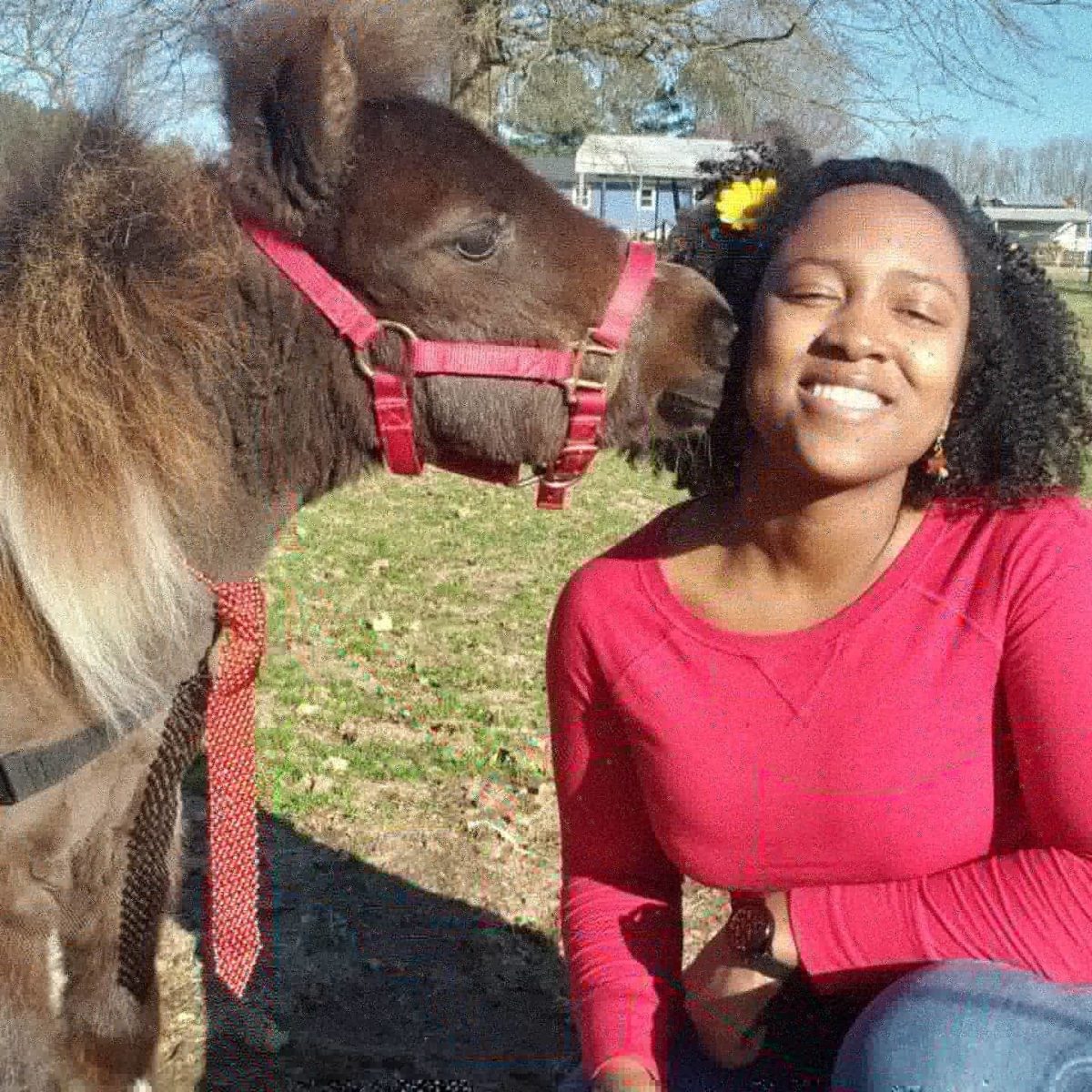
Johnson, Gooch and Chandler all agree that another way to build inclusion is to increase the representation of black equestrians in advertising, magazines and at shows. All three have volunteered their time to mentor other aspiring riders and set an example for youth.
Gooch founded the Happy Hooves 4H Club and a non-profit called Saddle Up and Read that uses horses as an incentive to increase literacy rates.
Johnson is author of the Cowgirl Camryn book series, starring a black cowgirl, “because Old MacDonald wasn’t the only one to have a farm,” she jokes.
Chandler has provided mentorship to many aspiring dressage riders trying to navigate their way in a sport that can, at times, be exclusive and intimidating.
These are just small steps toward representation in a sport where black faces and voices have often been excluded.
Erasure and exclusion
History is yet another lens into the problem of inclusion and one that is perhaps less understood because the stories have largely been untold. The history of black riders is one of active exclusion, despite enormous and meaningful contributions to horse sport.
Horse racing is perhaps the best example of this. In post-Civil War America, black jockeys gained celebrity status, winning 15 of the first 28 Kentucky Derbys. Isaac Murphy, the son of a former slave, is considered by some to be the greatest American jockey in history. He was the first to win three Kentucky Derbys. However, following segregation, black jockeys were banned at most tracks in America. In fact, no black American rode in the Kentucky Derby between 1921 and 2000.

Black cowboys and cowgirls have been erased from the tomes of the wild west, despite comprising a quarter of the people who worked in the cattle range industry. Black Americans frequently faced racism at rodeos, with riders being compared to animals and given racist nicknames. In response to this racism and segregation, black cowboys formed their own associations and rodeos and to this day are underrepresented at the world’s major rodeos. In 2016, the Calgary Stampede had only two black competitors out of 120.
Walter Thompson-Hernandez, author of The Compton Cowboys, has reflected on this lack of representation. He recalls growing up in Los Angeles and driving through Compton with his mother and being shocked to see black men riding horses on the street.
“The moment was so jarring because I felt like I had been lied to,” he says. “I never learned about black cowboys and cowgirls in my history classes as a child. The hardest part of the whole experience was that I was never alone. There were thousands of other children who were also being taught an incomplete part of history.”
“I think a historical erasure has occurred with the experiences of black riders. I think it’s a function of systematic racism and the way that African-Americans continue to be the victims of racism in every aspect of society,” he adds.
As an adult, Thompson-Hernandez returned to Compton to spend time with the men and their horses and tell their story.
The path forward
There are no easy answers to the question of how to make the horse world more inclusive. It requires a conscious effort, humility and a willingness to listen to the experiences of others.
And people need to be allies and call out racism every time they encounter it.
“If there’s something going on during a show, a trail ride, at the barn… if someone expresses a racist statement you need to express in public that you won’t tolerate it,” says Gooch.
Ultimately, we all have work to do.
“We can share our experiences, but I, as a person of color, cannot teach you how to value me. You have to do that on your own. You have to be kind. You have to be aware of having that implicit bias,” says Johnson.


 June 23, 2020
June 23, 2020 








